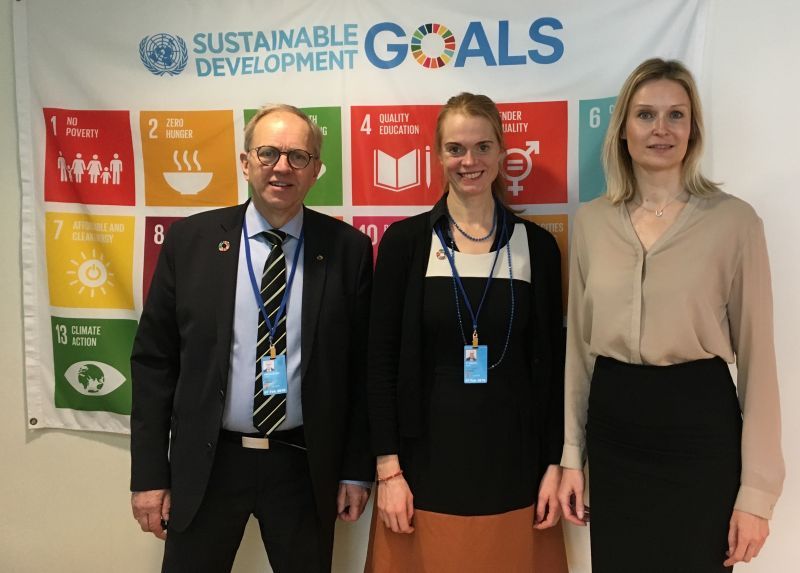
Co-op News for the International Co-operative Alliance
With 13 out of the 17 SDGs linked to farming and forestry, agri co-ops can be instrumental in helping to achieve the UN’s Sustainable Development Goals. The UN’s 2030 agenda recognises the inter linkages between supporting sustainable agriculture, empowering small-scale farmers, ending rural poverty and ensuring social inclusion and healthy lifestyles. As people-centred enterprises, co-operatives can contribute to the 17 goals, focused on ending poverty, protecting the planet, and ensuring prosperity for all.
To encourage multi-stakeholder partnerships in the field of agriculture, the UN’s 56th session of the Commission for Social Development (CSocD56) featured a side event on building resilience in rural areas.
The session looked at how co-ops can help eradicate poverty and promote prosperity and what governments, the civil society and the UN can do to better support farmers and their co-ops.
Daniela Bas of the UN’s Division on Social Development, who hosted the event, introduced the issue by describing how poverty, hunger and the lack of a viable future can lead to migration to cities and other countries.
A survey conducted in 2017 by Copa, the Committee of Professional Agricultural Organisations, and Cogeca, the General Confederation of Agricultural Cooperatives in the European Union, revealed that farmer members were concerned about their future economic prospects, mainly due to uncertainty around the global market developments and trade.
Thomas Magnusson, president of Cogeca, was one of the panellists taking part in the discussion. Cogeca currently represents 40,000 agri co-operatives employing some 660,000 people and with a global annual turnover in excess of €300bn across Europe.
Mr Magnusson highlighted the role of co-ops in combating poverty, giving farmers better access to markets, adding value and improving rural resilience:
“Agricultural co-operatives play a key role in improving the lives of millions of smallholder farmers and their families, boosting growth and jobs in rural areas. They give farmers better access to markets and secure a higher return for farmers for their produce. They also help farmers to be resilient in times of crisis. They currently process and trade around half the total output of the agricultural sector. We are ensuring competiveness, by adding value and improving rural resilience. With our efforts we are moving European agriculture, collectively to a level of ‘anti-fragility’ for the next generation,” added Mr Magnusson.
He also pointed out that co-operatives were enabling farmers to position themselves in the food chain and adapt digital solutions to save on input costs and tackle challenges. “Demand-driven research and innovation, training and advisory services, financial support to invest in new technologies are crucial for this,” he said.
Another panelist in this session, Elisabeth Pape, minister councilor, EU delegation to the United States, referred to the importance of increasing the resilience of EU member states. She explained how this commitment had been confirmed by the European Consensus for Development, adopted in June last year, which is the translation of the Agenda 2030 for EU development co-operation. The consensus recognizes co-operatives as key actors to support achieving the implementation of the SDGs.
Carla Mucavi, Director, Food and Agriculture Organization (FAO) Liaison Office to the United Nations agreed with Mr Magnusson on the important role for co-operatives in achieving many of the SDGs, both in developing and developed countries.
The co-operative movement affirmed its commitment to the SDGs agenda in 2016, at a high-level meeting in the presence of Daniela Bas, Carla Mucavi, and other UN representatives. Since then over 300 co-operatives have used the International Co-operative Alliance’s platform Co-ops for 2030 to describe how they were contributing to implementing the UN’s development agenda.
Photo: Mr Magnusson with Lotta Tähtinen, UN – SDG – outreach and communication and Ingrid Rydberg, Director of Brussels office of LRF




